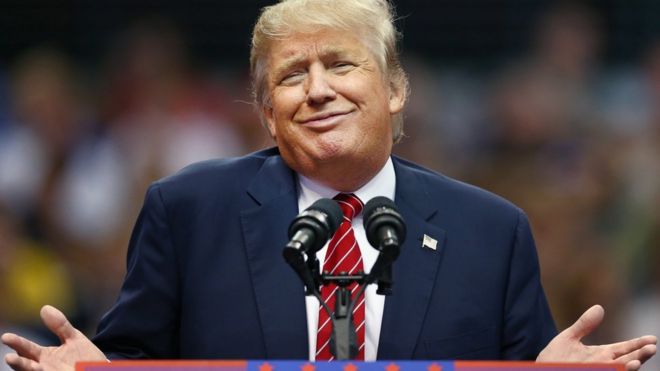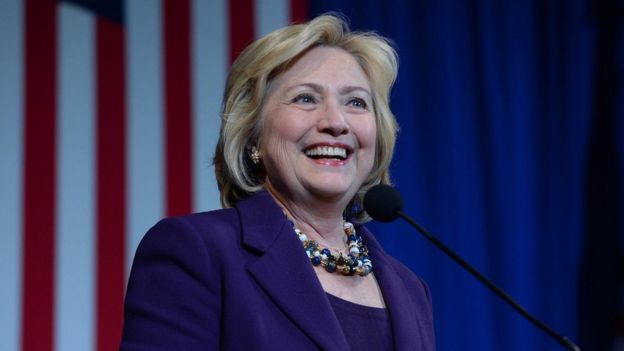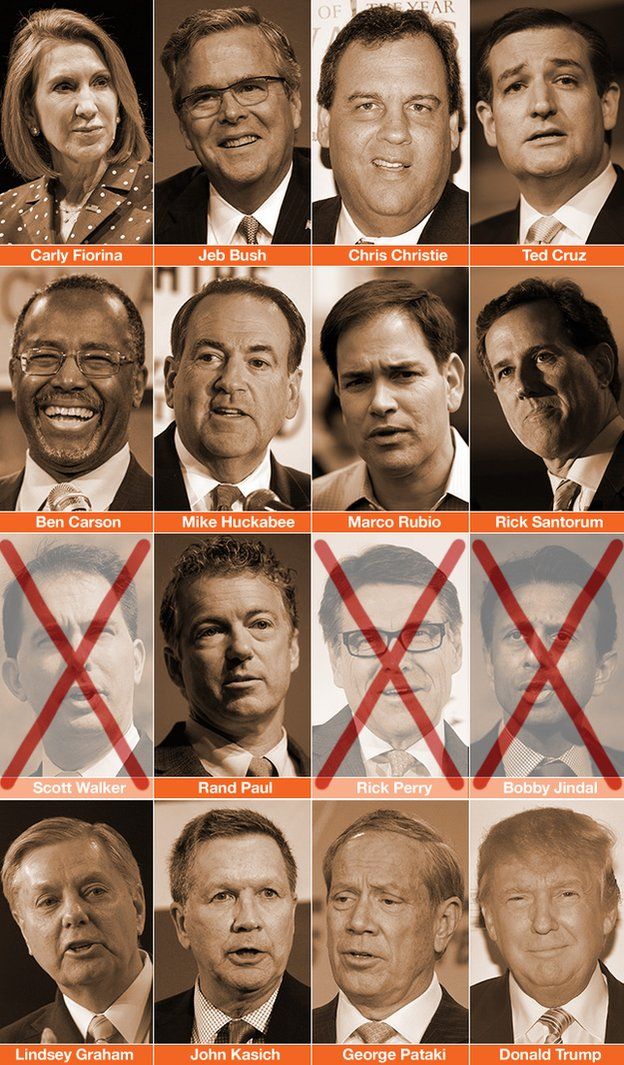
Republican leaders are currently thrashing about - holding secret meetings, issuing confidential memos and making public denunciations - as they approach a state of near panic over what Donald Trump is doing to their party. It's enough to make some believe that Mr Trump may not have the Republican establishment's best interests at heart.
Could Donald Trump be a secret double-agent, sent by Democrats to destroy their party from within? Former Florida governor Jeb Bush, who has borne the brunt of more than a few Trump barbs, seems to think there's a possibility."Maybe Donald negotiated a deal with his buddy Hillary Clinton," Mr Bush tweeted this week, after Mr Trump cited a poll showing his supporters would stick with him if he left the Republican Party. "Continuing this path will put her in the White House."
The New York billionaire has a spotty political history, at best. He was a Republican, then he was a pro-choice Democrat, and now he's a fire-breathing, anti-immigration populist conservative
Could this latest iteration of Mr Trump's political brand be just a ruse, the elaborate cover for a liberal saboteur who has spent the past year setting explosives that threaten the unity of the party he pledged to support?
He's belittling his Republican colleagues. He's pulling the party to the nativist right in direct conflict with the goal set by strategists in 2013 to appeal to a more ethnically diverse nation. And he's generally sucking up all the political oxygen, making it harder for other candidates to get their message out. All in all, many experts say he's making it much more difficult for a Republican to win the general election next fall. Maybe he's doing it on purpose.
It's a theory that has been bubbling long before Mr Bush's recent Twitter accusation.
"If Donald Trump were a Democratic mole placed in the Republican Party to disrupt things, how would his behaviour be any different?" asked conservative political commentator George Will in July. "I don't think it would be."
Just over a week later Republican Congressman Carlos Curbelo of Florida called Mr Trump "a phantom candidate recruited by the left to create this entire political circus."

Could Donald Trump and Bill Clinton be partners on more than just the golf course?
Of course Mr Trump has also contributed to plenty of Republicans. He likes to boast that he has "bought" politicians of all stripes. And Mr Trump's wedding was a coveted invitation for all of New York City's elite, of which the Clintons were definitely part.
But there's more.
Also suspicious - for those predisposed to suspicion, at least - is a "mystery" phone call between Mr Trump and Bill Clinton in May, less than a month before the real-estate tycoon tossed his hat into the presidential ring.
The details of that call are shrouded in secrecy, but that hasn't stopped conservatives from speculating that the seeds of a Machiavellian plan were sown.

Some conservatives think Hillary Clinton benefits every time Donald Trump says something controversial
Conservative commentator Brian Cates is less circumspect.
"Trump didn't jump into this race because of his deep abiding love for America, or his being a Republican or caring about conservatism," he writes. "Trump jumped into this race because BILL CLINTON urged him to."
And ever since that fateful day in mid-June when he descended a gold escalator in his office building to announce his candidacy, Mr Trump has dominated the political conversation, firing fusillades at Mexican immigrants, Muslims, his fellow candidates, the media and anything else that catches his eye.
Noah Rothman of Commentary magazine spies a pattern in Mr Trump's diatribes, whose timing, he argues, "tends to often coincide with scandalous revelations that reflect poorly on Democratic politicians".
Mr Trump, for instance, made his comments about closing US borders to all Muslims just a day after President Barack Obama's poorly received White House address on the so-called Islamic State.
Stories about Democratic frontrunner Hillary Clinton's email server and actions following the Benghazi consulate attack in 2012 have likewise been swamped by Trump-mania.
"None of this establishes either correlation or causation, but it is remarkably coincidental how often Donald Trump has rescued Democrats from the jaws of a terrible news cycle and the withering scrutiny of the press," he concludes.
Then again, given the number of times Mr Trump has made incendiary, headline-grabbing comments and the number of times conservatives have perceived there to be damaging revelations about Democrats that should have grabbed the headlines, perhaps it's not surprising that Rothman's list is so long.
But as the saying goes, even paranoids have real enemies. And, at least for the moment, there are some Republicans who see Donald Trump much more of an enemy than a friend.
Republican candidates in - and out - of the 2016 presidential race

No comments:
Post a Comment
Through this ever open gate
None come too early
None too late
Thanks for dropping in ... the PICs